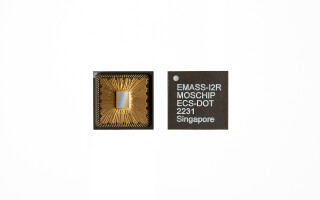Imagination's PowerVR Furian GPU architecture ups performance, efficiency for VR/AR
March 23, 2017

Imagination Technologies recently unveiled its next-generation PowerVR Furian architecture, which is an entirely new GPU architecture designed for the complex graphics and compute-intensive...
Imagination Technologies recently unveiled its next-generation PowerVR Furian architecture, which is an entirely new GPU architecture designed for the complex graphics and compute-intensive platforms, particularly those in next-generation consumer devices. For example, applications such as VR/AR require higher graphics resolutions and frame rates, and emerging applications such as ADAS and machine intelligence require increased compute efficiency. Furian addresses these needs using a multi-dimensional approach to scale performance. Different designs are available for low- and high-end IP cores.

Furian’s power-efficient architecture incorporates many of the features on which PowerVR was built, including Tile Based Deferred Rendering (TBDR), which provides highly efficient embedded graphics. Optimized for ease of layout in sub-14nm processes, the platform allows for future function-specialized pipelines to be tightly integrated with the GPU to deliver functionality that may not feasible to implement on a CPU/GPU/DSP, such as ray tracing capability.
Efficient use of compute APIs including OpenCL 2.0, Vulkan 1.0 and OpenVX 1.1 helps address the needs across various markets. And a bi-directional GPU/CPU coherent interface permits efficient data sharing.
Imagination has already licensed the Furian IP cores to multiple partners with initial RTL delivered. The first GPU core variants based on Furian should be announced by the middle of the year.





